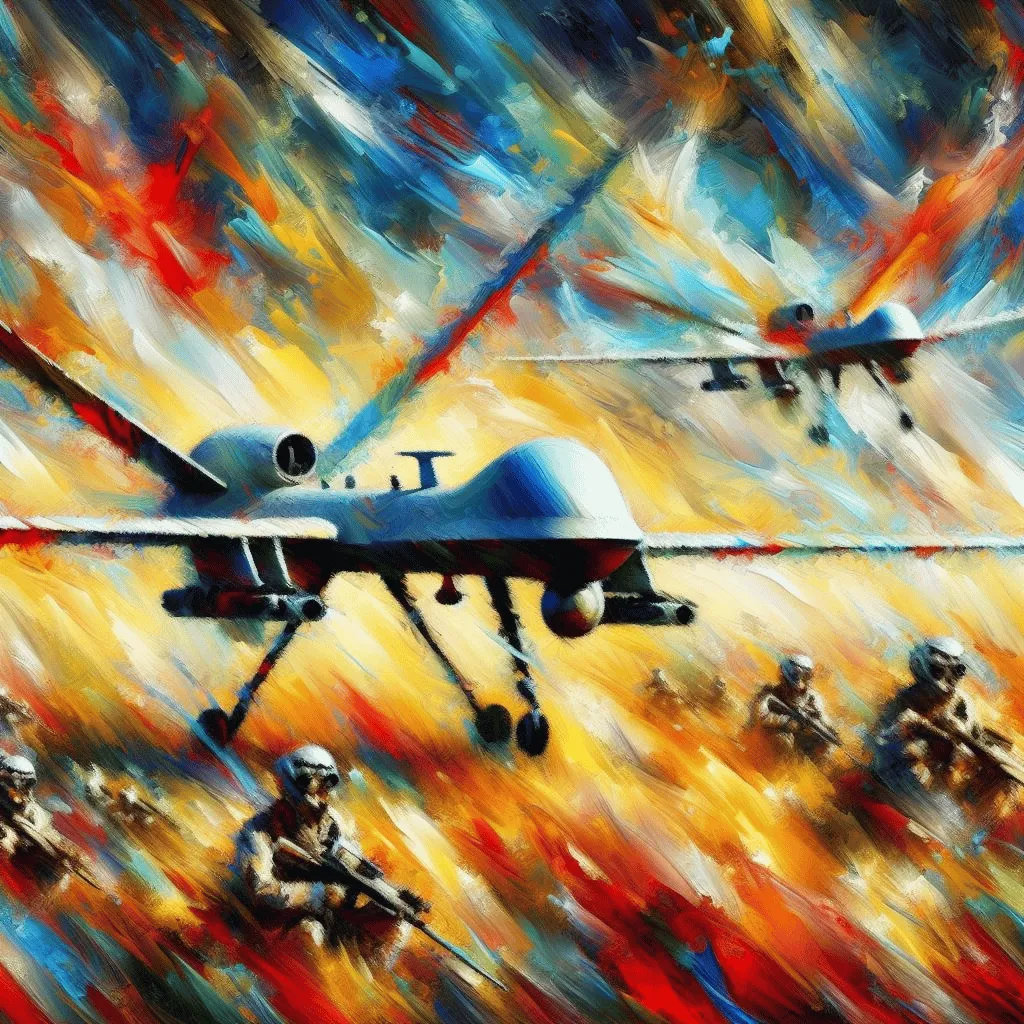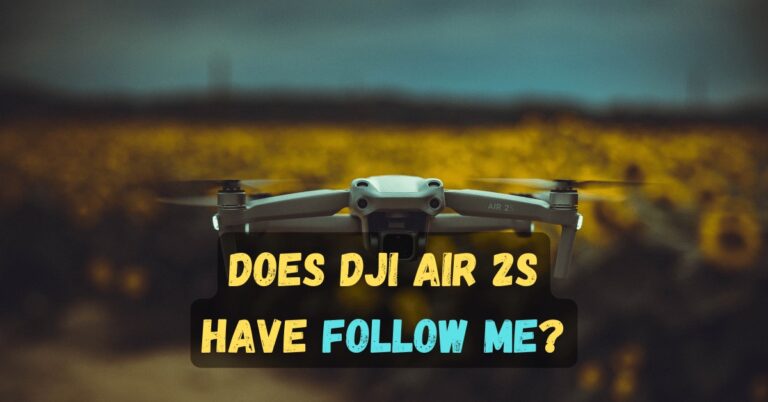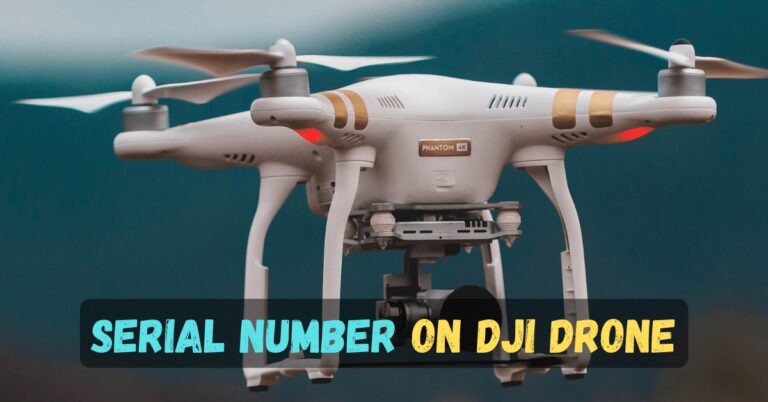Why Drones Should NOT be Used in War? (What is Bad in Them?)

War has always been a controversial and complex topic, and with the advancements in technology, new ethical questions arise.
One such question is whether or not drones should be used in war. While drones offer certain advantages, there are compelling reasons why their use in warfare should be reconsidered.
Can drones be used in war?
With the rapid advancement of technology, drones have become a hot topic in recent years. These unmanned aerial vehicles (UAVs) have a wide range of applications, from aerial photography to package delivery. However, one of the most controversial uses of drones is in warfare.
Drones have revolutionized modern warfare by providing a cost-effective and efficient means of gathering intelligence and conducting airstrikes.
They offer a number of advantages over traditional crewed aircraft, such as the ability to operate in dangerous or inaccessible areas, extended flight durations, and reduced risk to human pilots.
One of the key benefits of using drones in war is their ability to conduct surveillance and gather intelligence.
Equipped with high-resolution cameras and advanced sensors, drones can provide real-time imagery and data, allowing military forces to monitor enemy movements and identify potential threats.

Furthermore, drones can be armed with precision-guided missiles, enabling them to carry out targeted airstrikes with minimal collateral damage.
This precision targeting capability has the potential to significantly reduce civilian casualties compared to traditional airstrikes.
However, the use of drones in war is not without its critics. Some argue that the remote nature of drone warfare can lead to a dehumanization of the enemy and a lack of accountability for the actions taken. Others raise concerns about the potential for misuse or abuse of this technology.
Ultimately, the use of drones in war is a complex and contentious issue. While they offer undeniable advantages in terms of efficiency and reduced risk to human life, it is important to carefully consider the ethical implications and potential consequences of their use.
Why are drones bad in war?
Drones present a number of challenges and drawbacks in war, even though they offer some advantages. Here are some key reasons why their use is often criticized:
Civilian casualties:
Despite attempts at precision targeting, drone strikes can still result in unintended civilian casualties due to factors like faulty intelligence, technical malfunctions, or human error.
This can undermine the legitimacy of military actions and cause resentment among local populations.
Lack of accountability:
Due to the secretive nature of drone programs and the distance between operators and their targets, pinpointing responsibility for civilian deaths or other mistakes is often difficult.
This raises concerns about accountability and transparency, particularly for civilian populations suffering the consequences.
Erosion of traditional war norms:
Drone warfare potentially weakens established norms of engagement in conflict. The remote nature of drone strikes can desensitize operators to the act of taking life and may lower the threshold for using lethal force.
This could lead to increased militarization and a blurring of lines between combatants and civilians.

Psychological impact:
Both drone operators and victims can experience significant psychological trauma. Operators can suffer from moral distress and post-traumatic stress disorder due to the constant exposure to violence and death from afar.
Victims of drone strikes, including those who lose loved ones, may experience long-lasting fear, anxiety, and grief.
Legal and ethical ambiguities:
The legality of drone strikes in certain situations remains contentious under international law, raising questions about whether they comply with principles of proportionality and distinction between combatants and civilians.
Additionally, the use of drones for targeted killings raises ethical concerns about extrajudicial killings and due process.
Proliferation and escalation:
The increasing availability and affordability of drones raises concerns about their proliferation to non-state actors and the potential for escalation of conflicts.
Militarization through reliance on drones can also hinder diplomatic efforts and contribute to a “forever war” mentality.
While drones offer advantages like precision targeting and reduced risk to troops, it’s crucial to acknowledge their downsides and engage in informed debate about their responsible use in warfare.
Addressing ethical concerns, ensuring accountability, and prioritizing peaceful resolutions remain paramount considerations when deploying these powerful technologies.
Remember, the impact of drones in war is complex and multifaceted. It’s essential to critically evaluate both their potential benefits and drawbacks before arriving at conclusions.

Why drones should NOT be used in any war in the future?
Warfare has evolved significantly over the years, with technological advancements playing a crucial role in shaping the way conflicts are fought.
One such innovation is the use of drones, unmanned aerial vehicles that can carry out various military operations.
While drones offer certain advantages, it is essential to consider the reasons why they should not be used in any future wars.
1. Loss of human oversight and accountability:
Drone warfare removes the physical distance between decision-makers and the battlefield, potentially desensitizing operators to the consequences of their actions.
This can lead to a reduction in empathy and an increased risk of civilian casualties due to miscalculations or mistakes.
Attributing responsibility for such casualties becomes murky with remote operations, hindering accountability and potentially emboldening further harm.
2. Erosion of war norms and potential for escalation:
The ease and low risk of drone strikes compared to traditional warfare can blur the lines between combatants and civilians, potentially eroding established norms of engagement and proportionality.
This can lower the threshold for using lethal force and contribute to a cycle of escalation, jeopardizing fragile peace processes and fueling larger conflicts.

3. Psychological impact on operators and victims:
Drone operators grapple with the emotional toll of remotely taking lives, often experiencing moral distress and post-traumatic stress disorder.
On the receiving end, drone strikes inflict fear, anxiety, and lasting trauma on both victims and surrounding communities, exacerbating existing humanitarian crises and undermining trust in conflict resolution efforts.
4. Ethical and legal ambiguity:
The legality of drone strikes in certain situations remains a contentious issue under international law, raising questions about compliance with principles of distinction between combatants and civilians and proportionality in response.
This ambiguity creates a grey area for accountability and fuels ethical concerns about extrajudicial killings and due process.
5. Risk of proliferation and misuse:
The accessibility and affordability of drone technology pose a danger of proliferation to non-state actors and potentially even individuals, escalating local conflicts and increasing the risk of terrorism.
Misuse of drones for surveillance or targeted attacks can further threaten individual privacy and exacerbate human rights violations.
Instead of resorting to drone warfare, the future of conflict resolution should prioritize:
Remember, technology should serve humanity, not the other way around. In the context of warfare, prioritizing ethical considerations and upholding human dignity should guide our choices towards peaceful conflict resolution and a future free from the dangers of drone warfare.

What are the disadvantages of drones in the military?
Drones offer undeniable advantages in military applications, but their use also entails significant disadvantages to consider:
1. Vulnerability to hacking
One of the major concerns with military drones is their vulnerability to cyber attacks.
As drones rely on complex software systems, they can be targeted by hackers who may gain control over the drone or disrupt its communication, potentially compromising the mission and endangering lives.
2. Collateral damage
While drones are designed to minimize civilian casualties, there is still a risk of unintended harm.
The accuracy of drone strikes heavily relies on the quality of intelligence, and mistakes or faulty information can lead to civilian casualties and damage to infrastructure, which can have negative consequences for the military’s reputation.
3. Psychological impact
Operating drones can have a psychological toll on the personnel involved. Unlike traditional combat, where soldiers are physically present on the battlefield, drone operators may experience detachment from the consequences of their actions.
This emotional disconnect can lead to stress, anxiety, and moral dilemmas.
4. Overreliance on technology
Dependence on drones can create a potential weakness in military strategy.
In the event of a technological malfunction or disruption, the loss of drone capabilities may leave military forces at a disadvantage, especially if alternative methods have not been adequately developed or maintained.

5. Ethical concerns
The use of drones raises ethical questions regarding the legality and morality of targeted killings. The lack of transparency and accountability in some drone operations can result in controversies and strained international relations.
While drones undoubtedly offer significant advantages in military operations, it is crucial to consider and address these disadvantages to ensure responsible and effective use of this technology.
What’s the most significant threat that drones can pose when employed in warfare?
The most significant threat posed by drones in warfare extends beyond conventional risks, encompassing diverse security challenges.
Cheap drones, easily accessible, can serve as tools for chemical terrorism, presenting a substantial threat to security.
Beyond terrorism, drones introduce new dynamics, with precision-guided munitions capable of surgically targeting larger, conventional armies.
The widespread availability of commercial drones, as highlighted by experts, emerges as a substantial national security threat, loosening constraints on potential targets.
Modern air defenses, while effective, still face challenges in countering the drone threat, necessitating a nuanced approach to security.
Final Thoughts – Why Drones Should NOT be Used in War?
Drone warfare presents a complex ethical and practical crossroads, offering advantages like precision targeting but shadowed by significant disadvantages like civilian casualties, erosion of war norms, and lack of accountability.
It’s a technology brimming with both potential and peril, demanding careful consideration as we navigate its future in armed conflict.
While proponents tout its efficacy and reduced risk to troops, the dehumanization of warfare and potential desensitization of operators raise serious concerns about the long-term consequences.
The ease of drone strikes risks lowering the threshold for using lethal force, potentially fueling cycles of escalation and undermining fragile peace processes.
The legal and ethical ambiguities surrounding drone warfare further complicate the picture. Civilian casualties, often unintended, leave a legacy of resentment and raise questions about accountability.
The lack of physical proximity between decision-makers and the battlefield blurs lines of responsibility and hinders transparency.

FAQs
Yes, drones are vulnerable to hacking and jamming, which can disrupt missions or even cause them to crash. This vulnerability raises concerns about potential loss of control, data breaches, and attacks on critical infrastructure.
Drones can be valuable tools for surveillance, reconnaissance, and intelligence gathering. They can provide real-time updates on enemy movements, terrain analysis, and support search and rescue missions.
Remotely taking human life can lead to moral distress, PTSD, and other mental health challenges for drone operators. The constant exposure to violence and death from afar can significantly impact their psychological well-being.
The legality of drone strikes in certain situations remains a contentious issue under international law. Questions surround compliance with principles of proportionality, civilian distinction, and due process.
Investing in diplomacy, conflict resolution initiatives, and addressing the root causes of conflict can offer more sustainable and less harmful alternatives to armed solutions. Non-lethal technologies and peacekeeping missions can also play a role in mitigating violence and promoting peace.







